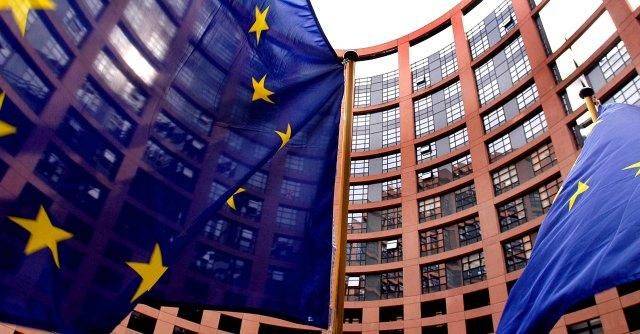Sunday’s EU vote: A Litmus Test for Renzi
On Sunday Italians go to the polls to elect 10% of the new deputies at the European Parliament in Strasbourg. Although premier Matteo Renzi stressed that the results “are not a test for my government,” that is how they are being read, with Renzi’s Partito Democratico measured against Beppe Grillo’s Movimento Cinque Stelle. The vote is also important on its own. The new Euro Parliament will elect the next president of the EU Commission, even as the Euro monetary system itself has become a convenient scapegoat in Italy.
ROME – On Sunday Italians, along with the citizens of their 27 fellow European nations, go to the polls to elect the new European Parliament. The vote is particularly important because the new Parliament will in turn elect the next president of the EU Commission. In addition, the vote is being read as a litmus test for the government of Matteo Renzi and the relative strengths of the two other competing larger parties, Beppe Grillo’s Movimento Cinque Stelle (M5S) and Silvio Berlusconi’s reborn Forza Italia.
The success of the controversial United Kingdom Independence party (UKIP) in scattered local elections there May 22 has left many here nervous. The UKIP is a notoriously anti-Europe, anti-immigrant party, and the gains it made at the expense particularly of the Labourites but also of the Conservatives ring a note of warning of what Beppe Grillo’s Movimento Cinque Stella (M5S) just may achieve Sunday.
And therein lies a tale: last week this already overly rough-and-tumble Italian election campaign struck a new note of intolerance when former Premier Berlusconi compared Grillo to Hitler. Moreover, said Berlusconi, a Grillo victory would bring “the risk of distressing disorders.” Why would Berlusconi, whose renovated Forza Italia party is plainly number three behind the PD and M5S, choose such extreme language? An editorial writer for Corriere della Sera suggested that the comparison with Hitler and implicit threat of a Berlusconi-fostered march on Rome reflect Berlusconi’s fear that, once election results are counted, Premier Matteo Renzi’s left-leaning Partito Democratico (PD) may have no choice but to strike a new governing coalition deal with Grillo. The EU election thus looms here as a showdown between Renzi and Grillo.
As if warding off the prospect of future negotiations with Grillo, Renzi took pains to declare that the EU election results “are not a test for my government.” Indeed, pollsters give Renzi’s PD almost 35%, by comparison with 24% for Grillo. Still, a slightly disturbing bellweather was Renzi’s major rally in Rome Thursday, where the meager turnout left Piazza del Popolo half empty. Moreover, the rally was disturbed by a mini-riot over housing, which resulted in 40 demonstrators held by police.
In last year’s general election the Grillo’s M5S won one out of four votes. This election will further precipitate Grillo onto the political stage. Showing its current greater expectations, its grizzled political-cum-internet guru Gianroberto Casaleggio mentioned the possibility of his acquiring a government ministry. It was a political faux pas, and he backed off quickly, but it was revealing. As a result pundits here began quizzing the Grillini (as his foot soldiers are called) as to just what they would do if in office. The answers from their spokesmen and women were extremely vague. “We have an idea but we shall discuss it when the time comes,” said one member of Parliament. Said another: “Unlike the other parties, we are democrats and will consult on line with our supporters.” How many? Oh, maybe 30,000.
In the background of the elections are daily, painful revelations of financial scandal involving politicians and crony contracts, some with tentacles into organized crime.
Speaking of Italian politics, one of its most sophisticated and admired interpreters, James Walston, died at age 65 of cancer on May 12. Born in England, educated at Eton College and Cambridge University, he was head of the international relations department of American University of Rome. His specialty was contemporary Italian politics, and his extraordinarily popular blog had a keen following in the international press. At a commemoration held at American University Thursday, Reuters correspondent Phil Pulella said that, if Walston had been paid for every useful comment he made to the hungry media, the press would have gone bankrupt. Walston was the author of Roads to Rome: Mafia and Clientelism in Calabria.





































i-Italy
Facebook
Google+
This work may not be reproduced, in whole or in part, without prior written permission.
Questo lavoro non può essere riprodotto, in tutto o in parte, senza permesso scritto.